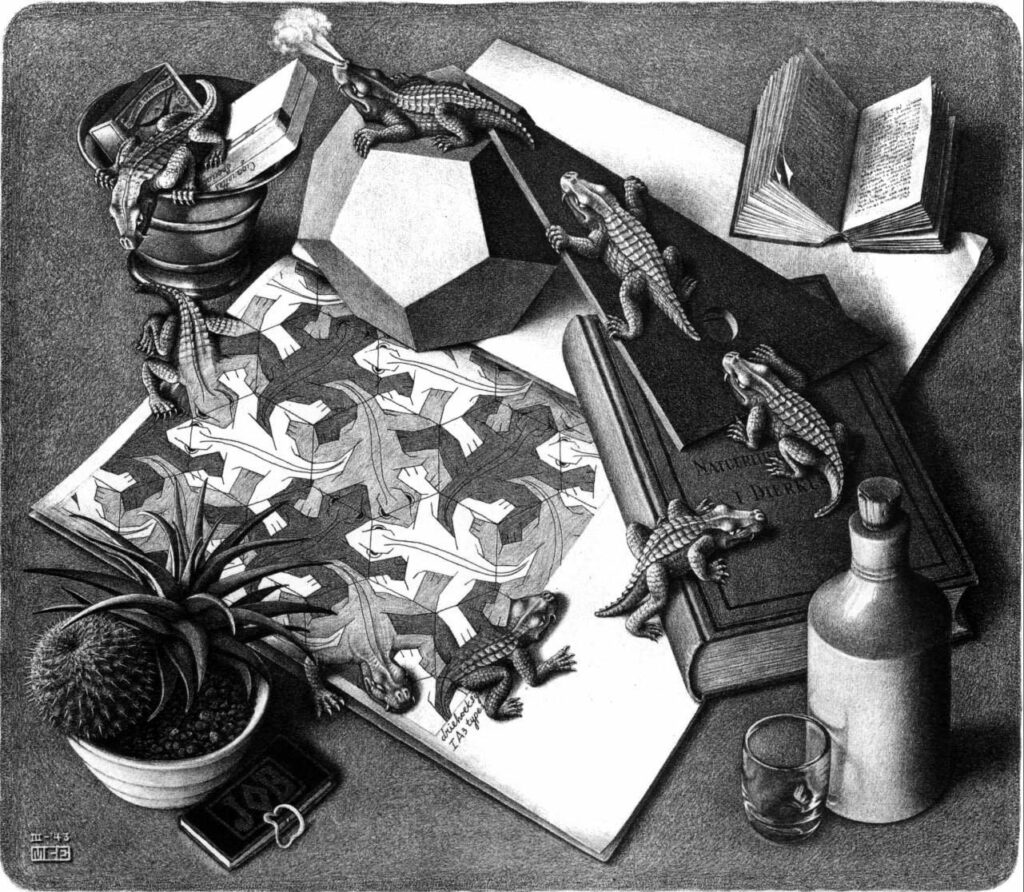
I’ve been wondering about the purpose of things, personal and universal. Of course, it’s possible there is no purpose as such, and the very idea of purpose is simply a by-product of human thought. But the universe seems purposeful, and one might say the existence of anything, let alone everything, is evidence of purposefulness.
Some cosmologists believe that how things are is due to broken symmetry, that in the meeting of matter with anti-matter at the beginning of time, matter had an edge that produced all and everything rather than perfect annihilation and nothingness. In any event, it’s how things are; we’re here.
As a physical, living entity I inhabit our universe along with non-living physical entities. In point of fact, I am comprised of non-living physical material – elements, chemicals and minerals – that in some way (still a mystery) catalyze into living material. Living things, more so than non-living, appear purposeful in their activity. They self-repair, interact with their environment, and pass on a genetic blueprint to successive generations. And although individual forms of life exist such as myself, I am part of a larger living system from which I cannot be divided except intellectually. The living system exhibits purposefulness as well. On a physical, biological level, animal life eats, shits, and reproduces. It filters the environment and in the act of doing so, alters it. This is true of individuals and the living system of plant and animal life.
For people, consideration of purposefulness on a metaphysical level – the realm of thought and imagination – raises powerful existential questions that drive the composition of personal relationships and society. These questions range from (a) the purpose of existence? to (b) the purpose of my life? Answers vary, and have fueled endless debate and conflict – philosophical, emotional, political, religious, and interpersonal. In is in the realm of the metaphysical we wrestle with matters of goodness, truth, and beauty.
As all-consuming such considerations appear to be, nature’s living system is indifferent to our matters of opinion; individual and collective ideas, feelings, and experiences appear irrelevant to the workings of nature, a source of great comfort to some and terrible uneasiness to others. This seeming contradiction is at the core of existence, mirroring the essential role of broken symmetry. We are simultaneously part and whole, particular and universal, the same and different; the tension within such seeming contradiction is the source of all.
Suffering spans both physical and metaphysical realms. Injury to the body causes pain, as does injury to the mind. The Buddha identified suffering, an experience we all share, as central to our being. The full realization of this fact, realization not simply as knowing it but as a process of self-actualization, then creates choice, and in choosing one may find purposefulness.
Is purpose found in self-satisfying activity or found in helping others? Nature doesn’t care. There is no escape from suffering in either case, but having realized the universality of suffering, what then? Happiness is not found in pursuit, but in fulfillment, and in any case is contextual. Nothing stays the same, everything flows, including happiness.
If, as Einstein taught, energy is all and everything, our purposefulness ultimately may lie in working with energy, both negative or positive. The symmetrical nature of existence points us in both directions. It’s up to each of us to choose how we break that symmetry.
Another excellent brain work-out. I often contemplate a life without purpose, the absence of which for me seems to result in enervation. At its most basic “purpose” is the bedrock for “meaning” and meaning reciprocates by furthering the need for purpose. Two sides of the same coin?